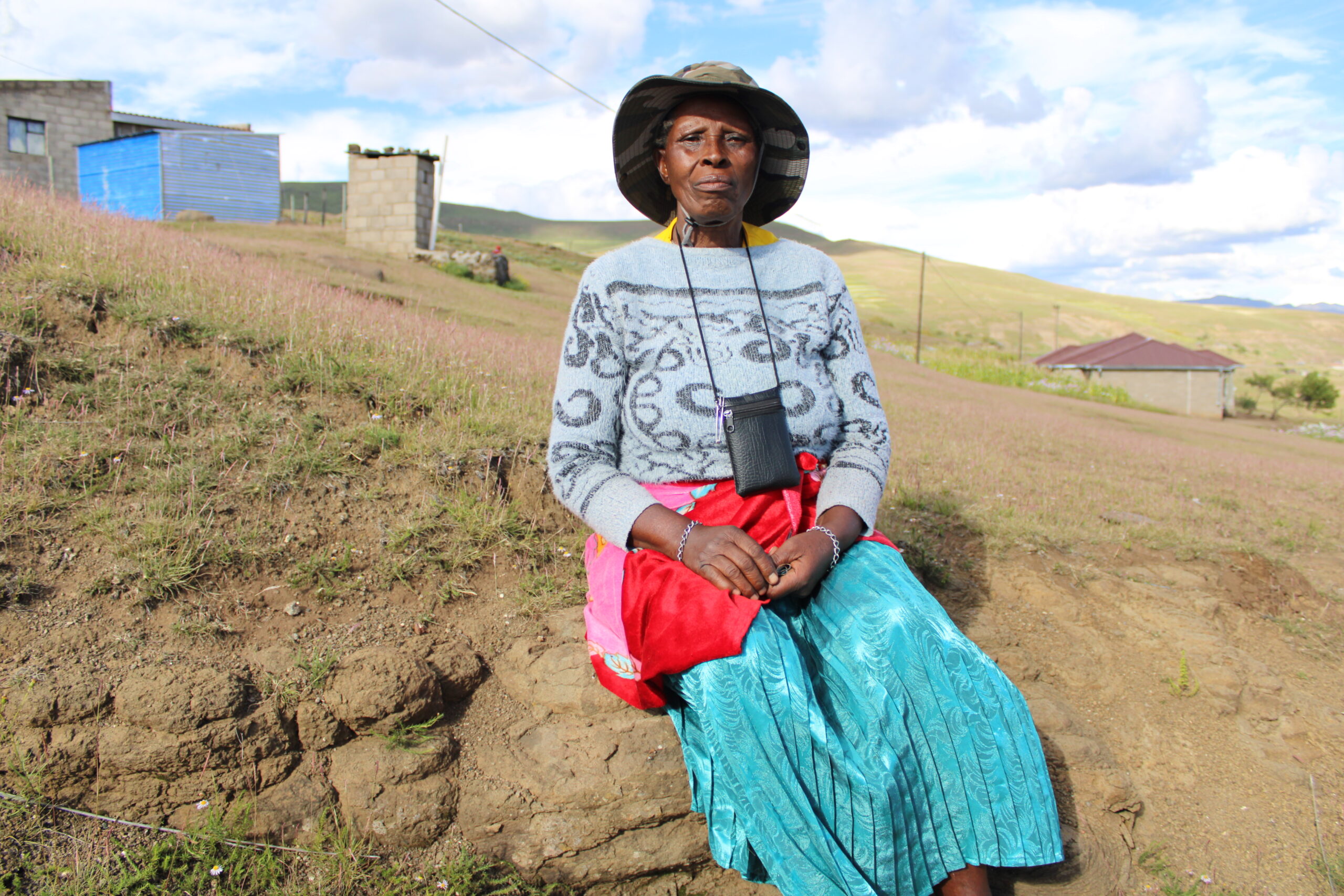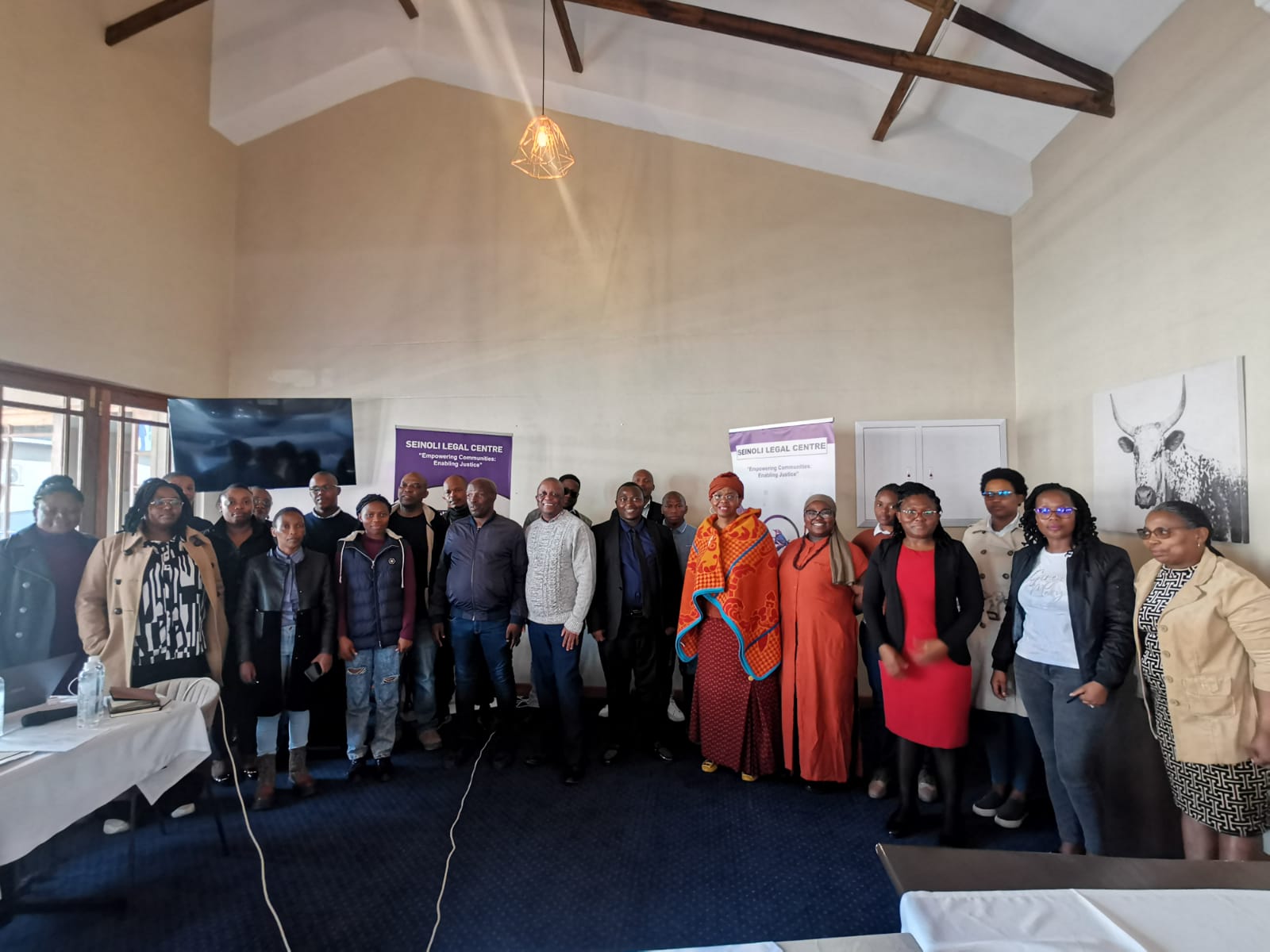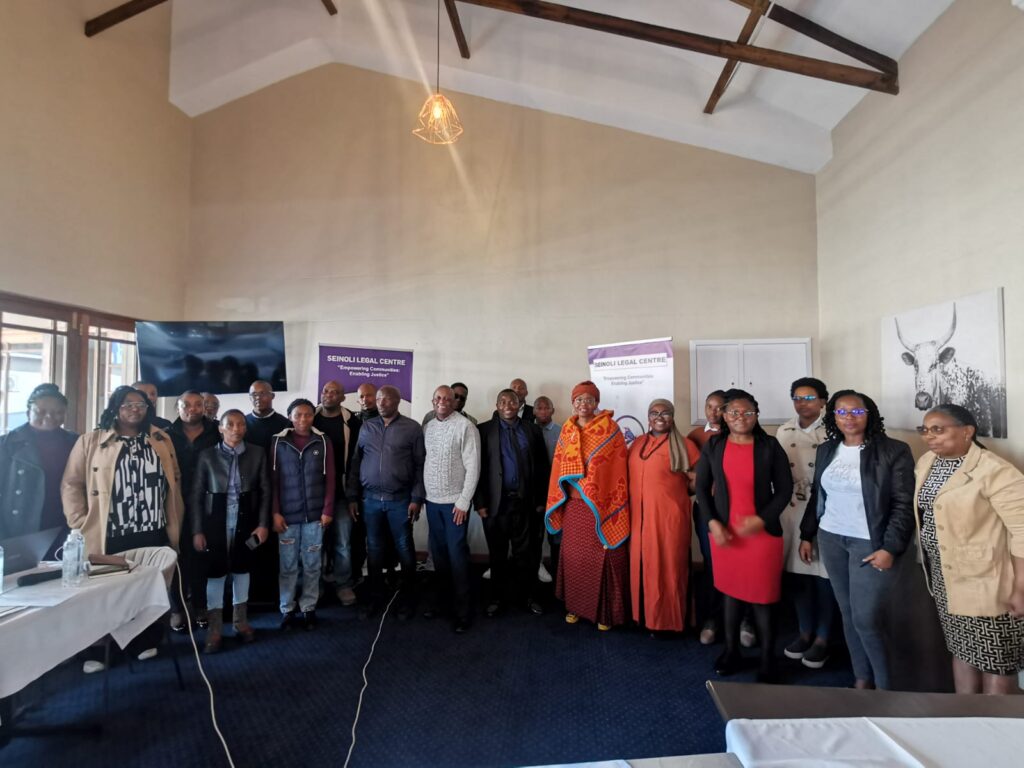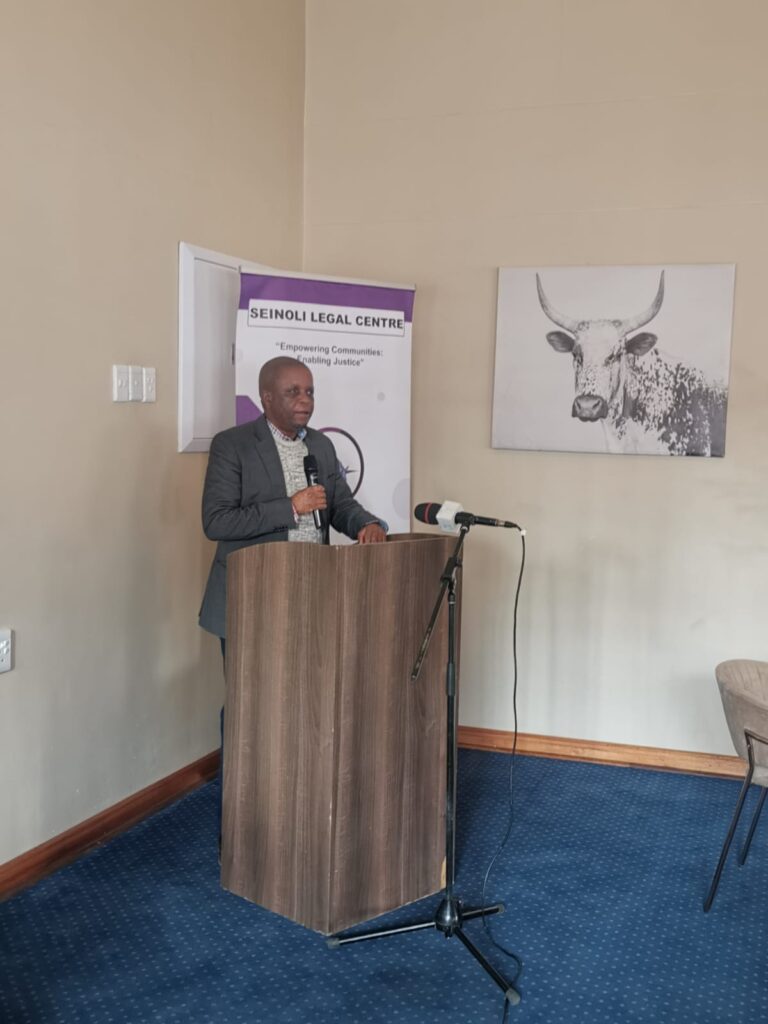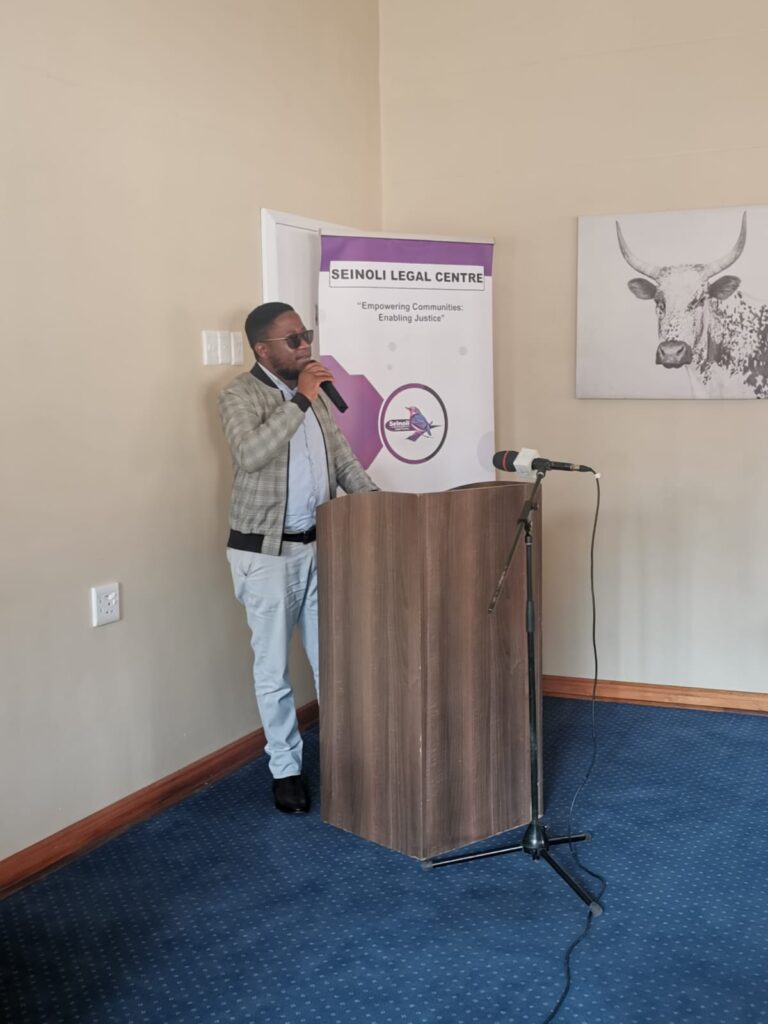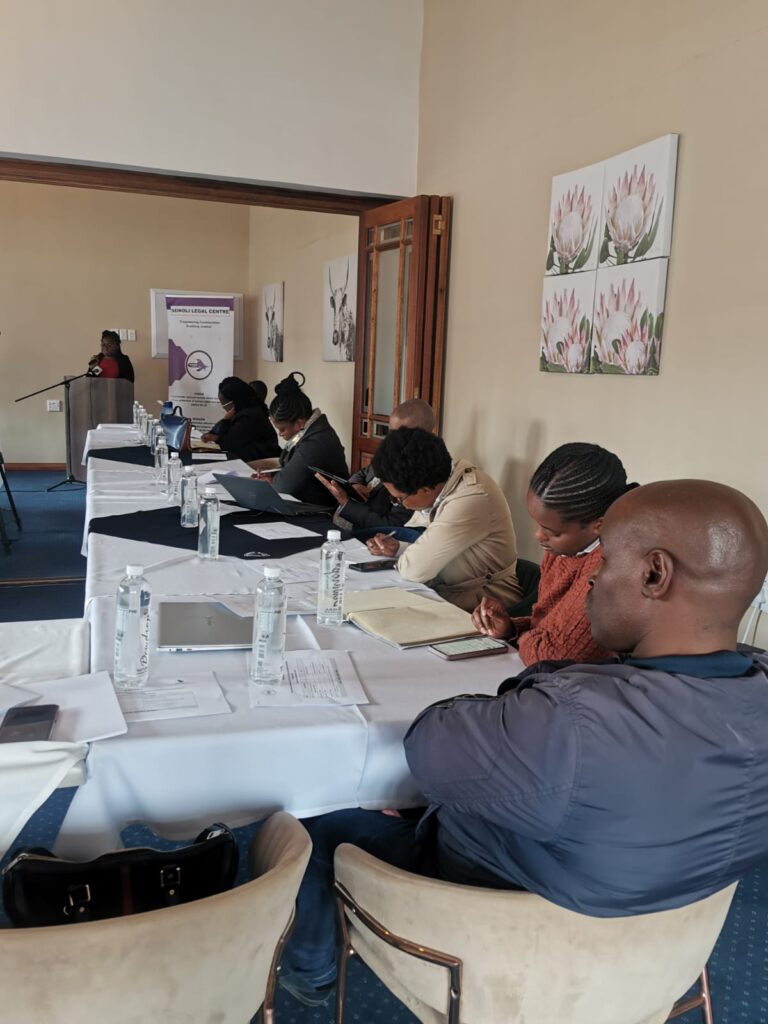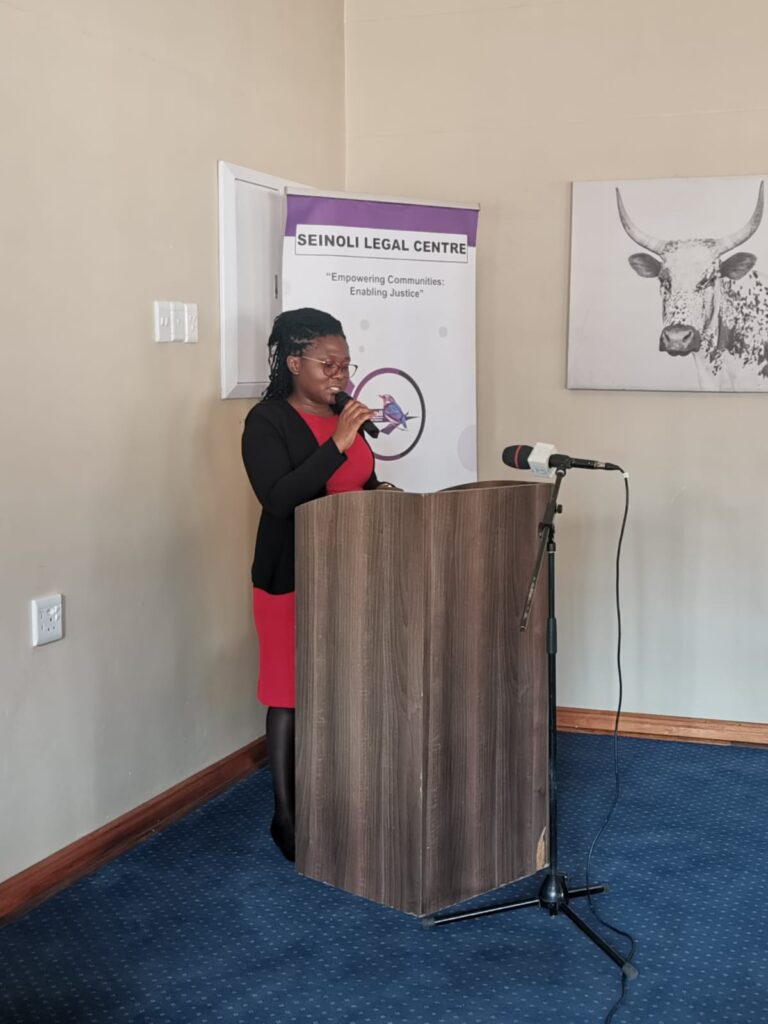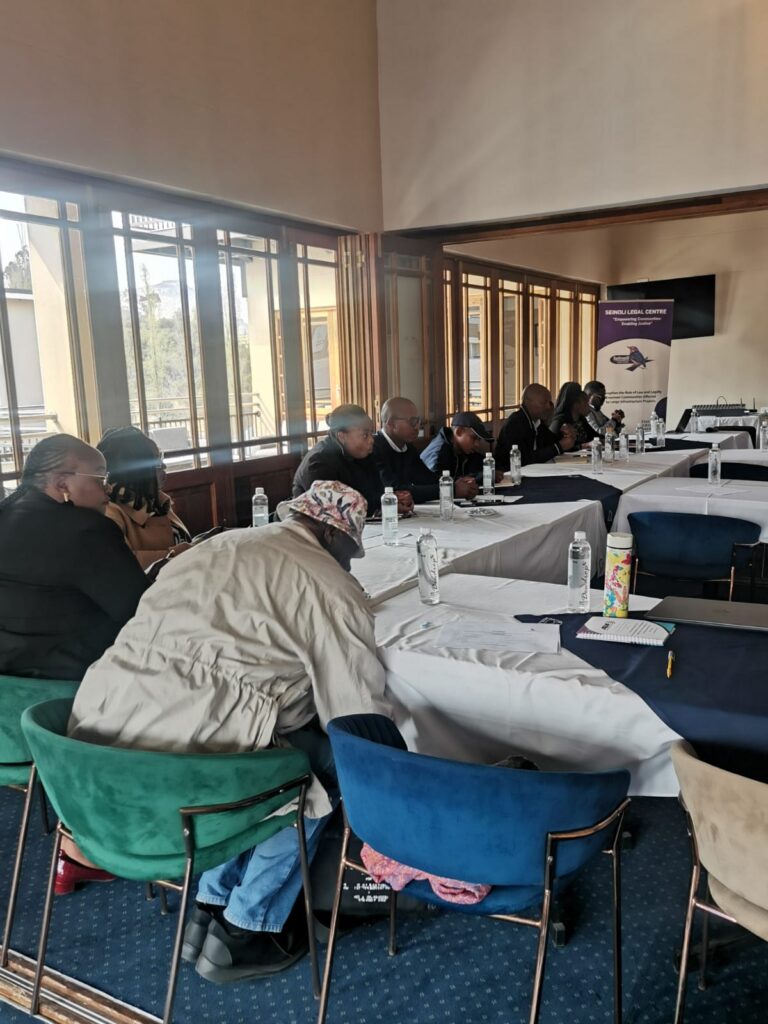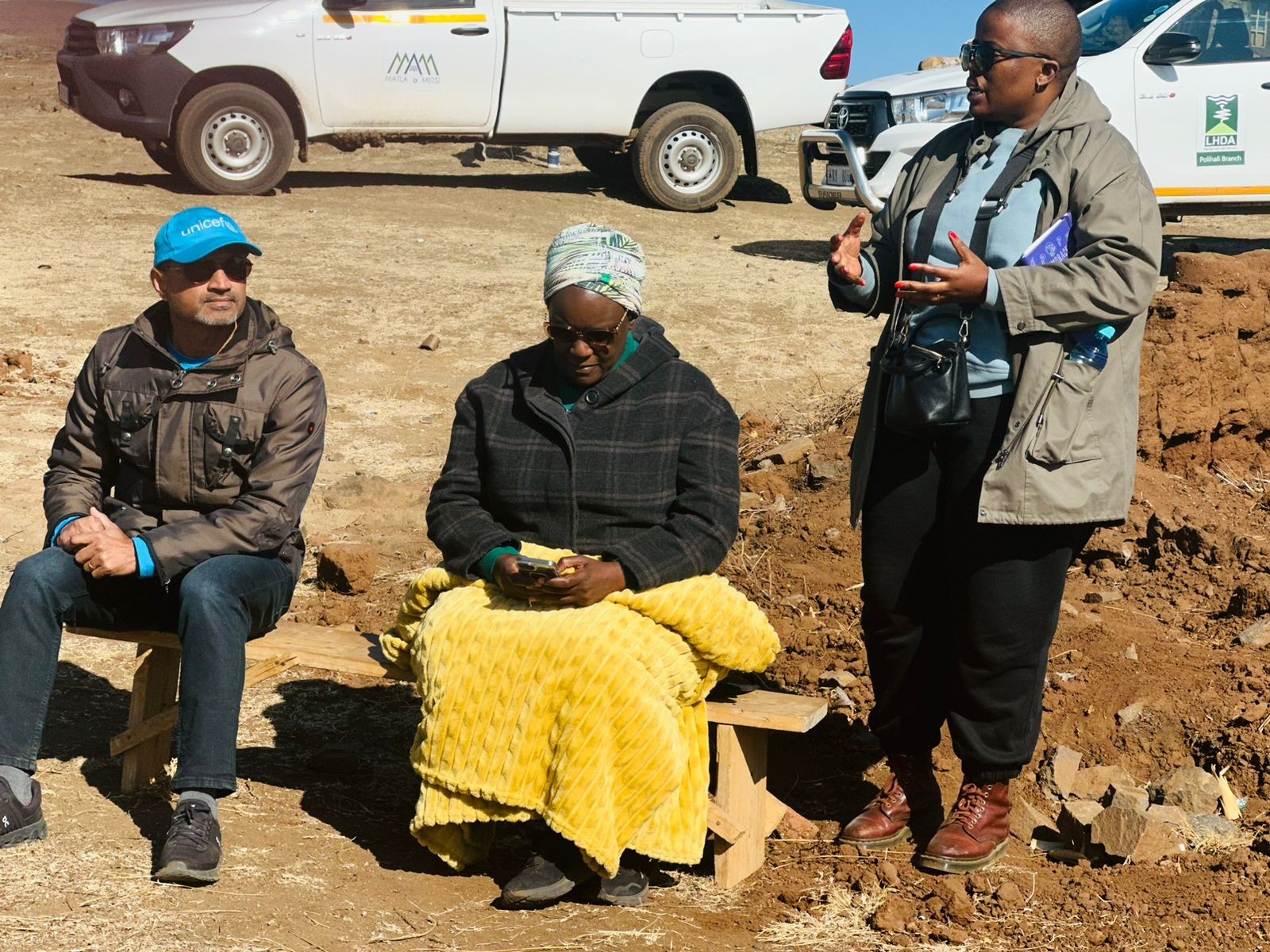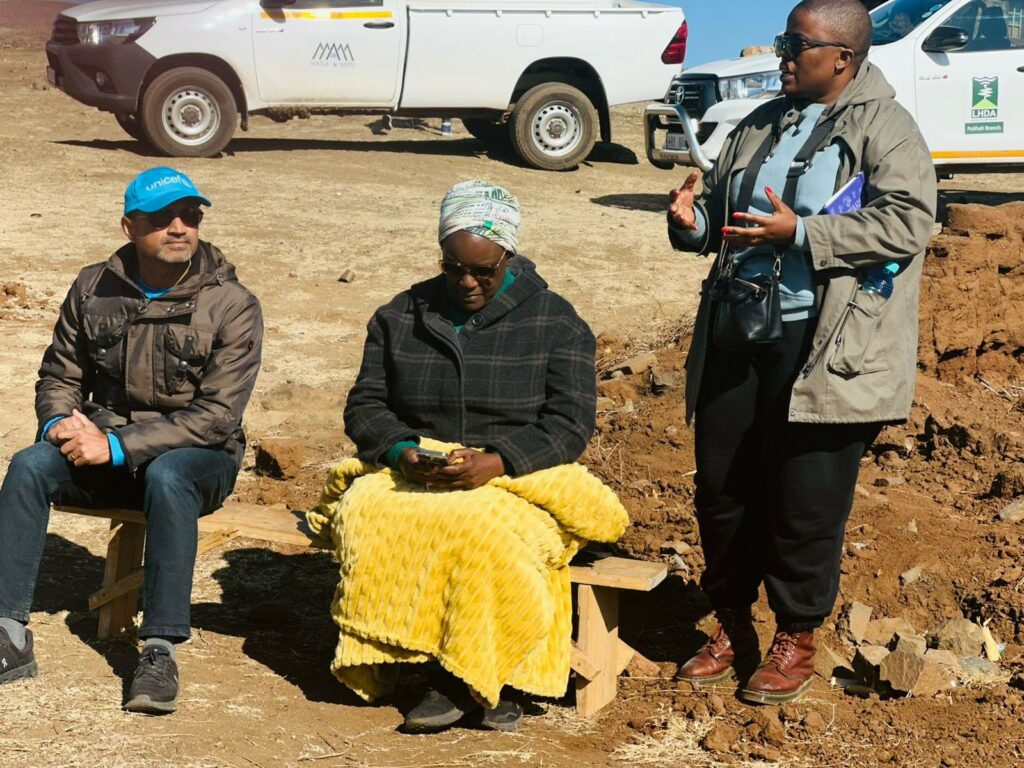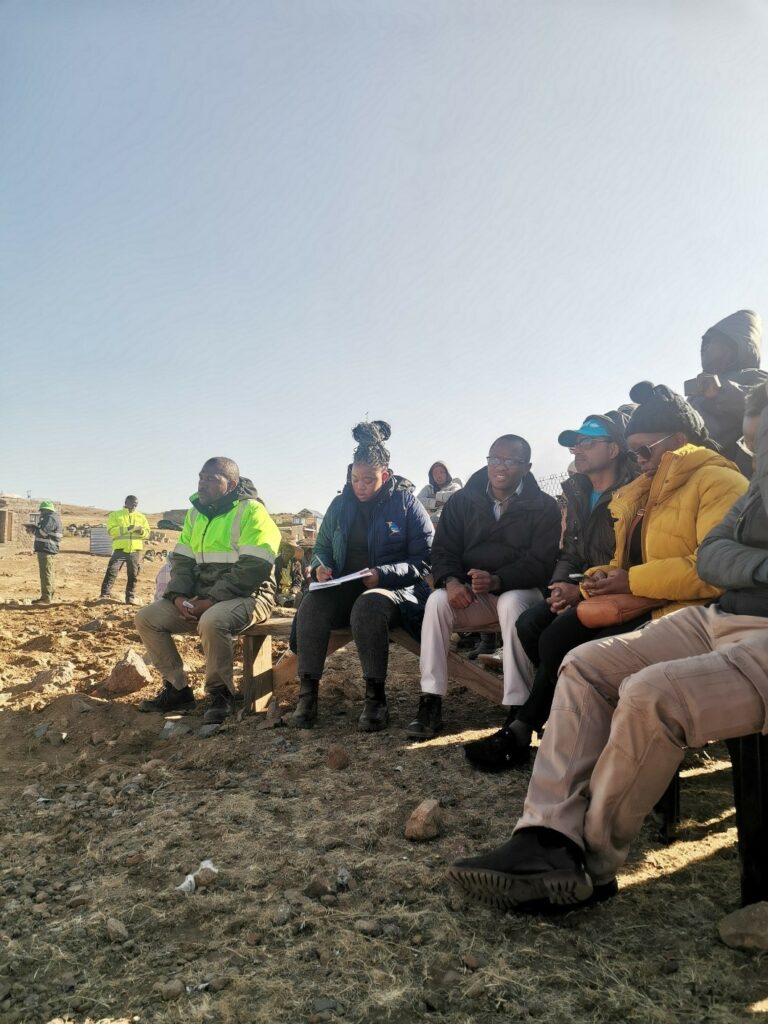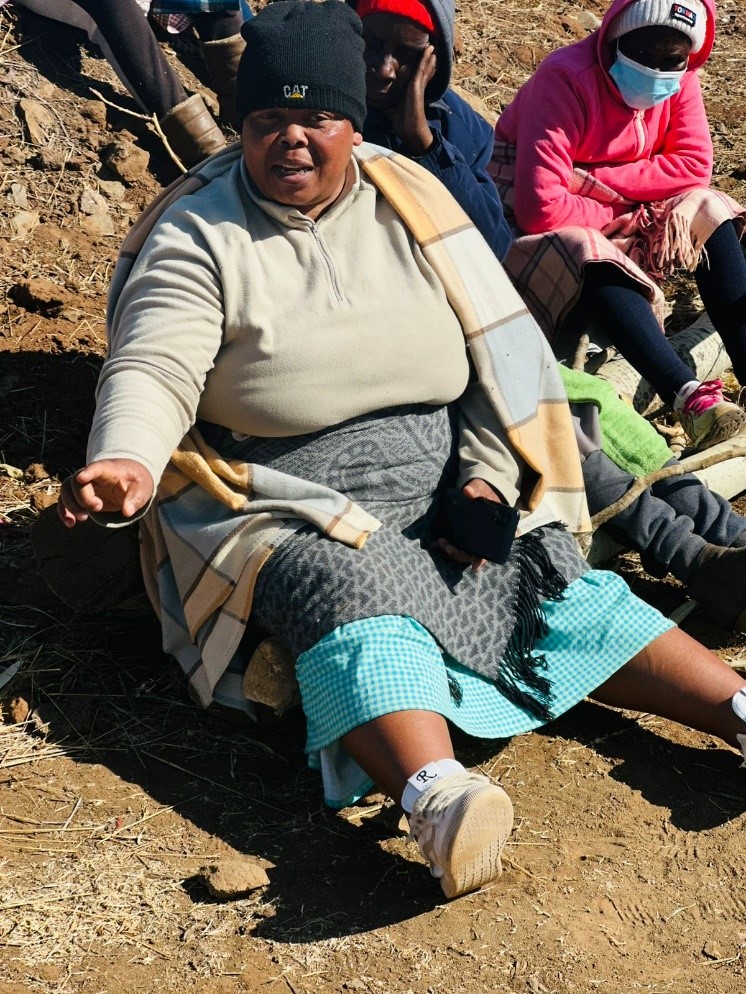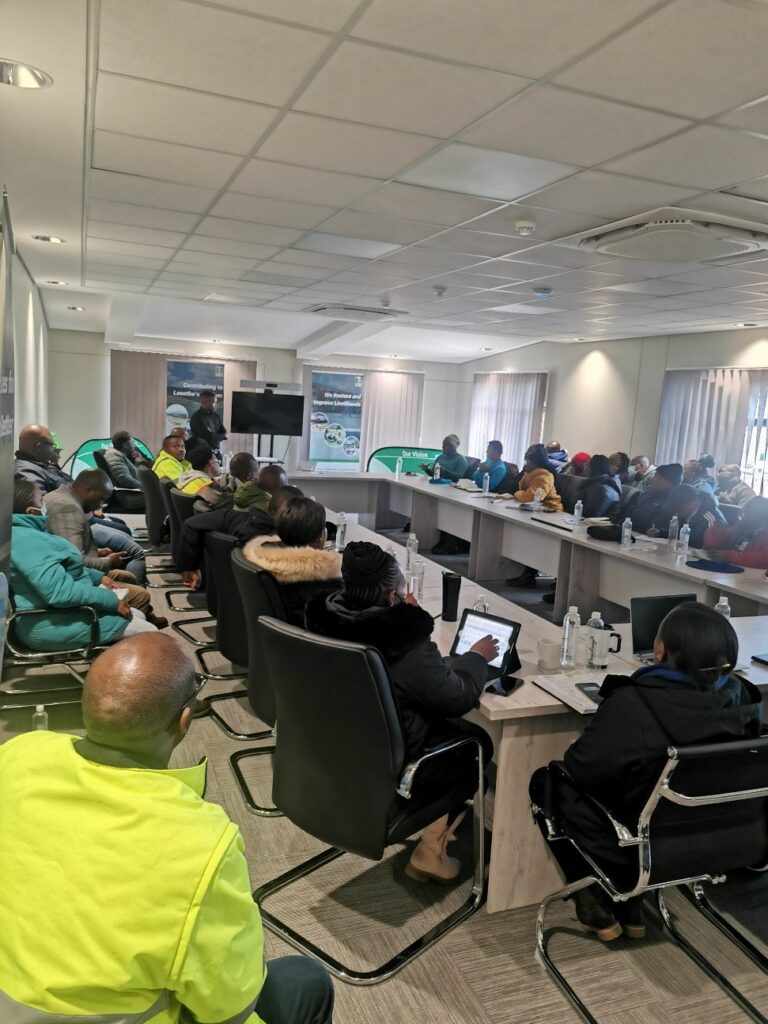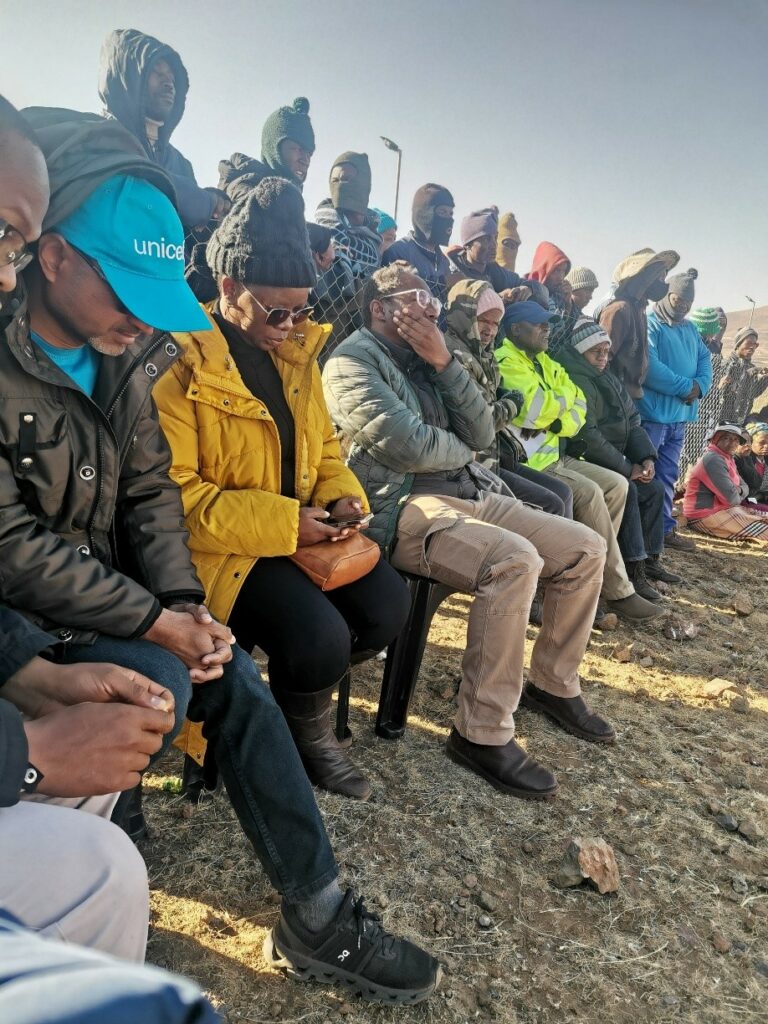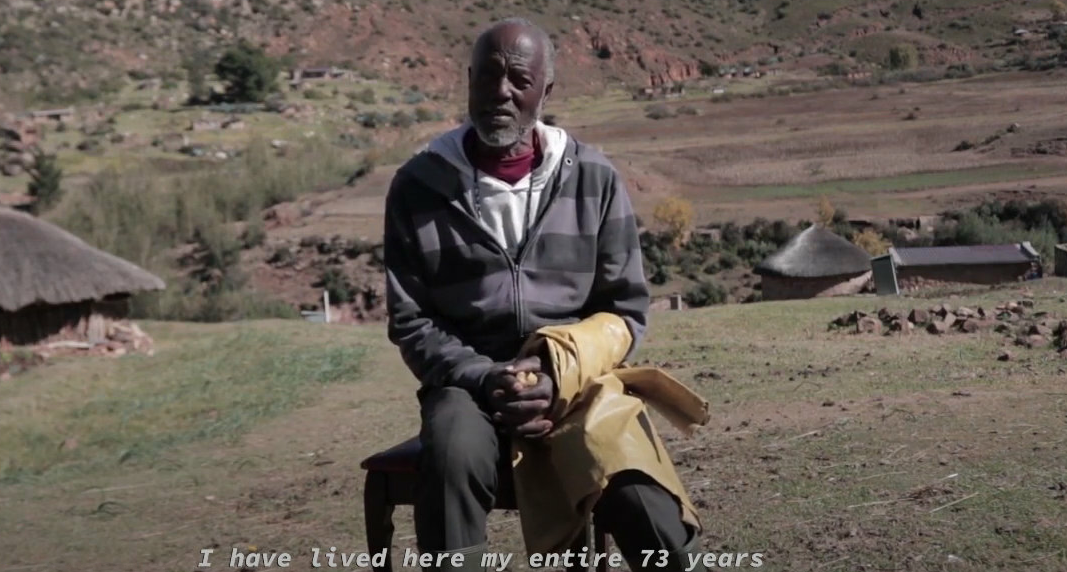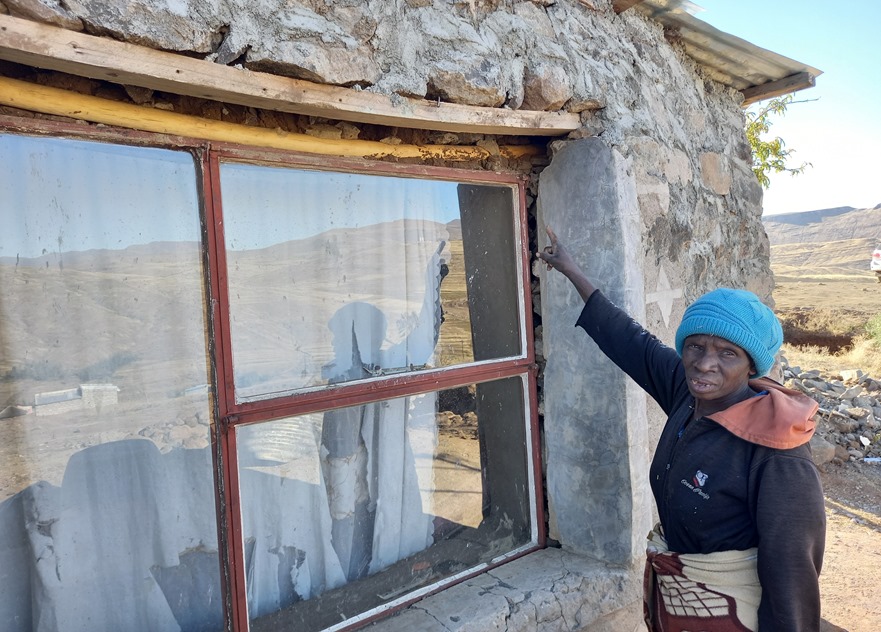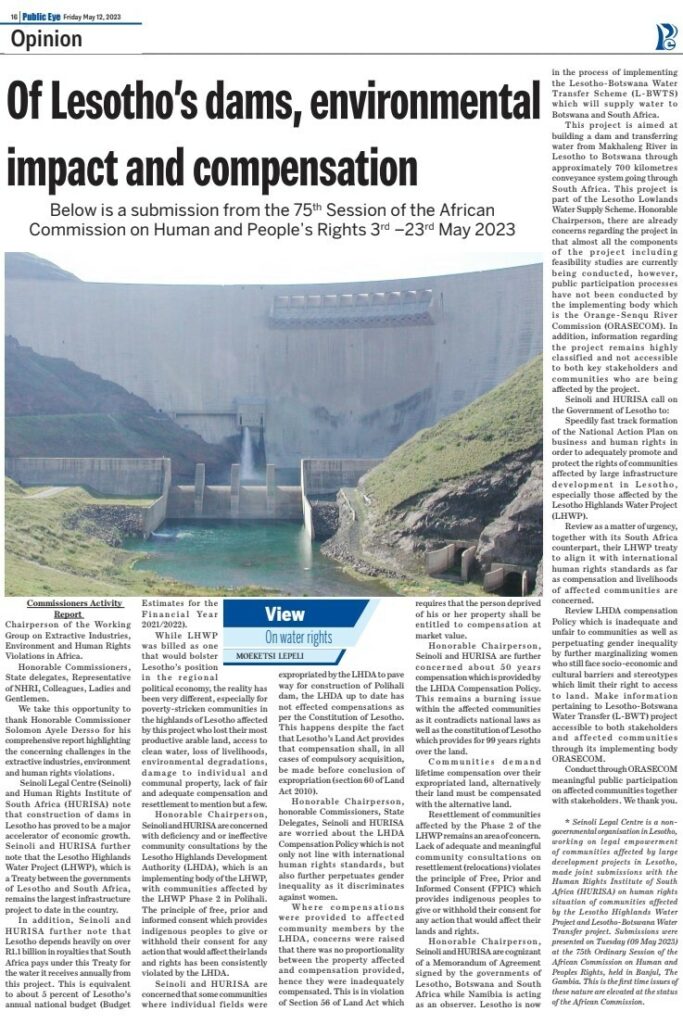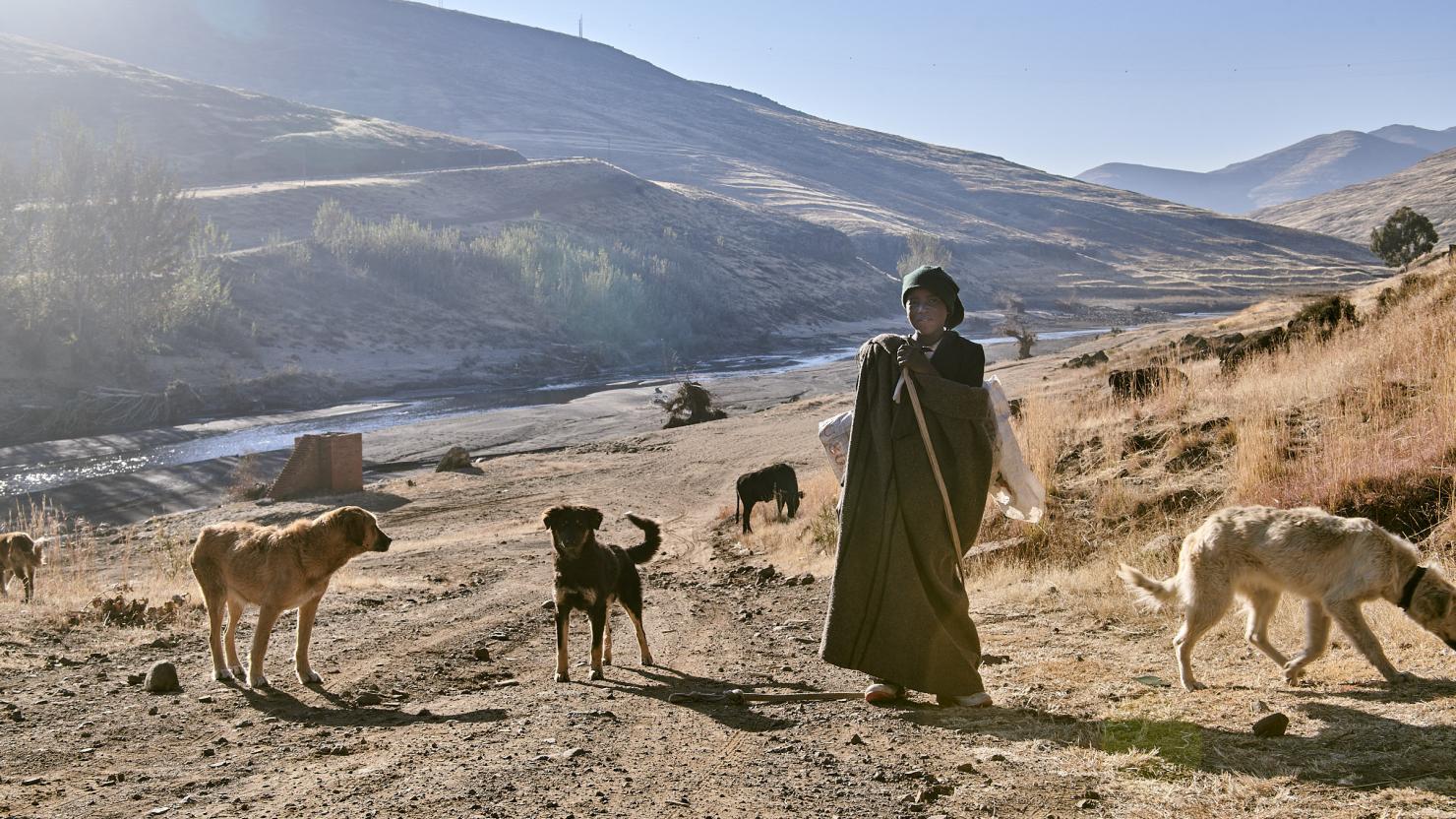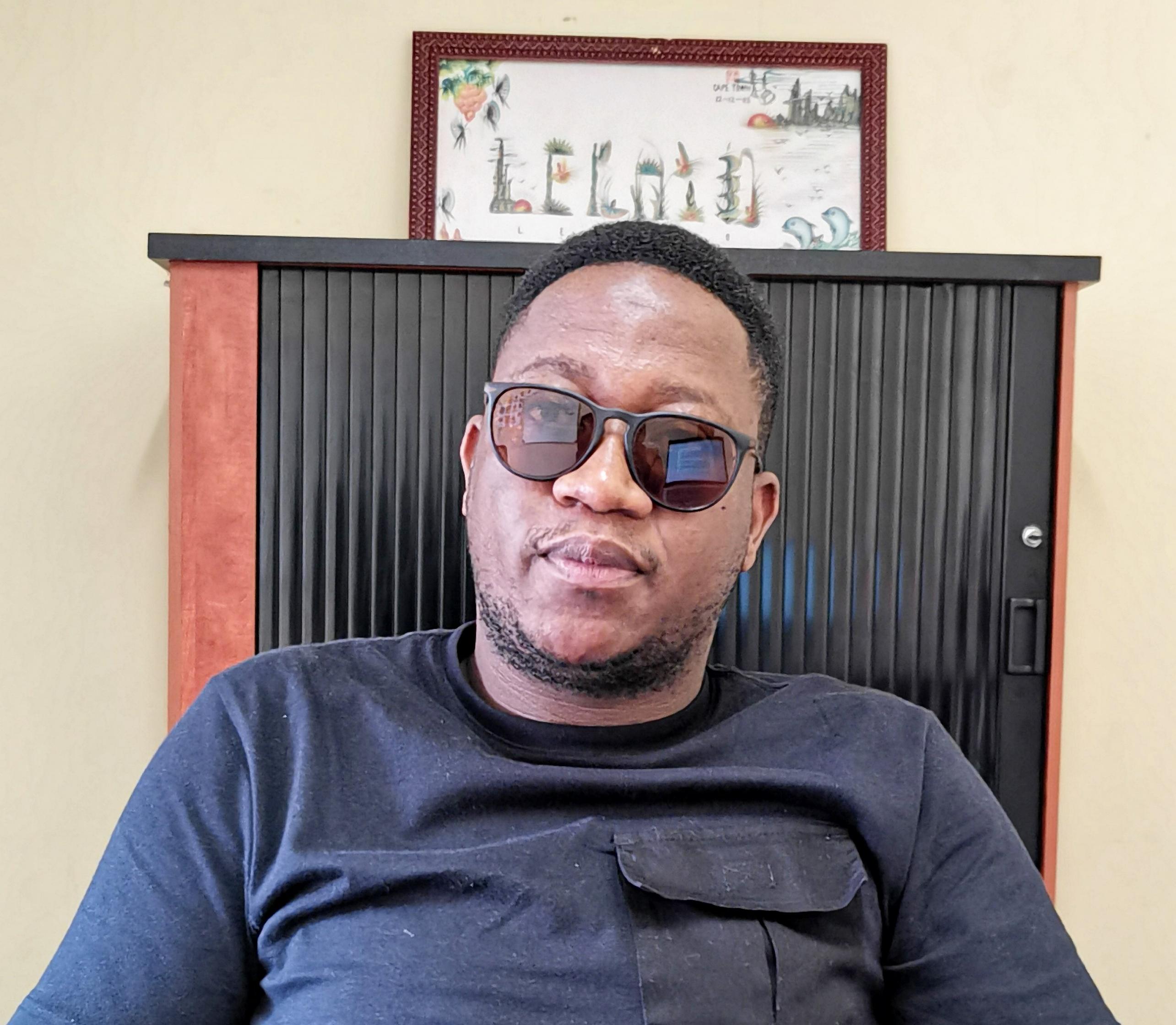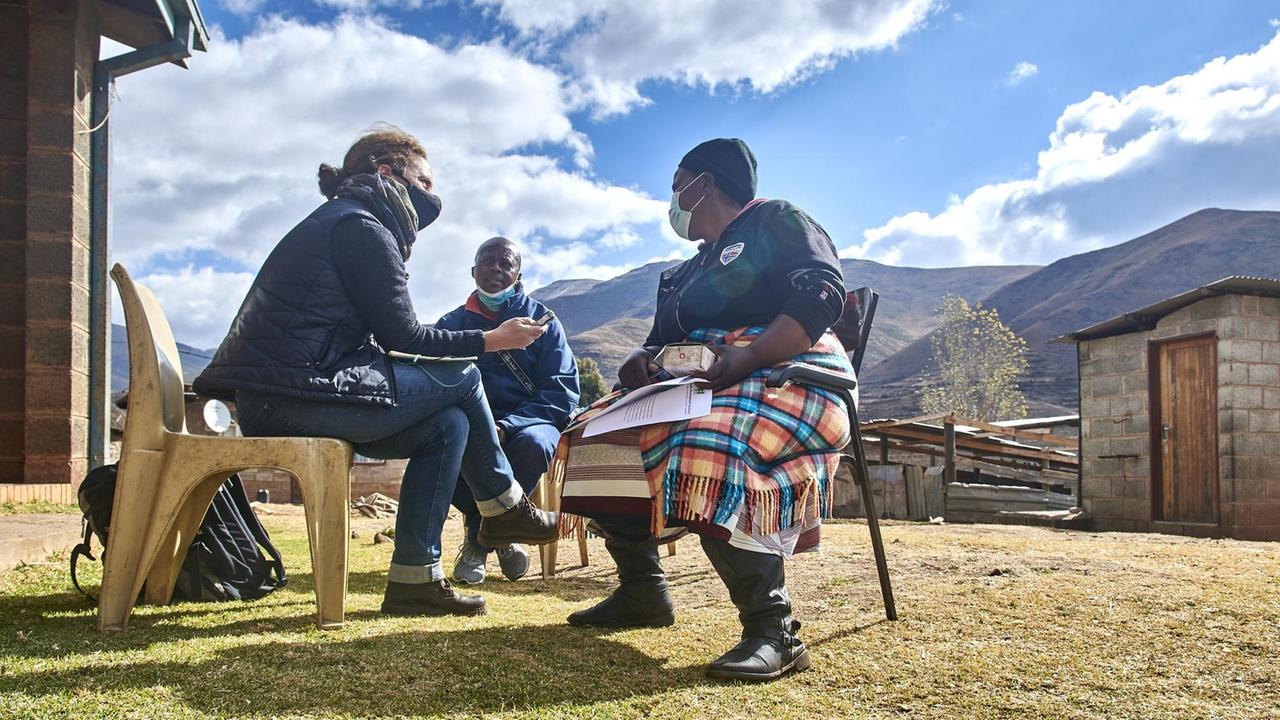The Fruits of Training Grass-roots Human Rights Defenders (HRDs): The Story of Seinoli’s Successful Community Engagement in Mokhotlong
Infrastructure development projects, while essential for national progress, often unfold in regions where vulnerable communities live and sustain their livelihoods. These projects can lead to significant disruptions, including forced relocations and environmental degradation, disproportionately affecting those in remote and marginalized areas. In such contexts, grassroots Human Rights Defenders (HRDs) play a pivotal role in safeguarding the rights of their communities. As recognised in the United Nations Declaration on the Right and Responsibility of Individuals, Groups and Organs of Society to Promote and Protect Universally Recognised Human Rights and Fundamental Freedoms (commonly known as the UN Declaration on Human Rights Defenders, 1998), HRDs have the right to promote and strive for the protection and realisation of human rights at the national and international levels.
Seinoli Legal Centre (SLC) has embraced this principle by empowering HRDs in Lesotho’s Mokhotlong district, particularly those affected by the Lesotho Highlands Water Project (LHWP) Phase II. Through targeted legal education and capacity-building initiatives, SLC has equipped local defenders with the tools to engage constructively with project implementers, advocate for community rights, and foster accountability. This story highlights the transformative impact of these trainings, showcasing how individuals like Mr. Kopo Mpiti, of Lilimala Mokhotlong, and Mrs. ‘Mathapelo Motabola, of Litšotsong Mokhotlong, have become catalysts for change, embodying the spirit of collective action and resilience in the face of systemic challenges.
Success Stories
Mr. Kopo Mpiti and Mrs. ‘Mathapelo Motabola are HRDs who champion the rights of communities through the collective action of demanding and defending their rights. They pursue the promotion of political and civil rights, including the realisation of social, cultural and economic rights. Consequently, these two community members have been the bridge between project implementers and the community. They also serve as mediators between Civil Society Organisations (CSOs) and their fellow neighbours as they are on the ground and physically engage with everyone in the community on a daily basis.
As SLC recognises the power of partnering with HRDs, and in communities where none exist, supporting the mobilisation of such people, it has been building HRDs’ capacity to enable them to effectively guard the rights of the vulnerable and marginalised. So far HRDs in 17 communities affected by the Lesotho Highlands Water Project (LHWP) Phase II have been trained. Their training involved legal education on various issues pertaining to their rights as property owners including, education on new legal amendments to the Administration of Estates and the Inheritance Act, gender-based violence (GBV) and gender-equality laws. They have also been equipped with tools on how to engage with project documents and policies.

Through these trainings, Mr. Mpiti has gained the confidence to defend his rights and the rights of everyone in his community. Mr. Mpiti notes that ever since receiving trainings from Seinoli, he boldly asks project implementers questions for clarification.
“This has caused them to be sober minded when they call us for community gatherings because they know that I will challenge them on any requirement they try to enforce on us outside the parameters of the policies.” Mr. Mpiti states.
Mr. Mpiti notes that the Lesotho Highlands Development Authority (LHDA), the project implementer of LHWP Phase II, had informed him that dam pipes will pass through his farmland, and instructed him to stop tilling the land. However, he notes that the site is outside the designated dam project markings. Due to the capacity he has received from Seinoli, Mr. Mpiti was able to defend himself and refuse when the LHDA wanted to meet with him privately about the matter. Instead, he proposed that they come to his village and address the issue with his fellow HRDs present.
Additionally, HRDs support community members on an individual basis. They are able to review important project related documents with their neighbours and guide them on the best cause of action when engaging with project implementers. For instance, Mr. Mpiti notes that he always advises fellow community members to involve him as a witness in any communication they engage in with LHDA. As the famous Basotho adage states “Letšoele le beta pooho” which loosely means that in community, one can overcome something that would be difficult to overcome alone.
Mr. Mpiti notes that he has proposed a new strategy in his village to document all communication made by individual families to LHDA. This strategy will also involve buying a book and laminate paper for minute taking during their community gatherings with LHDA. In this book they would record the proceedings, promises and agreements made, and have everyone present sign. LHDA officials would then receive their copy while the community also stays behind with theirs. According to Mr. Mpiti this would help to keep the LHWP project-implementer accountable.
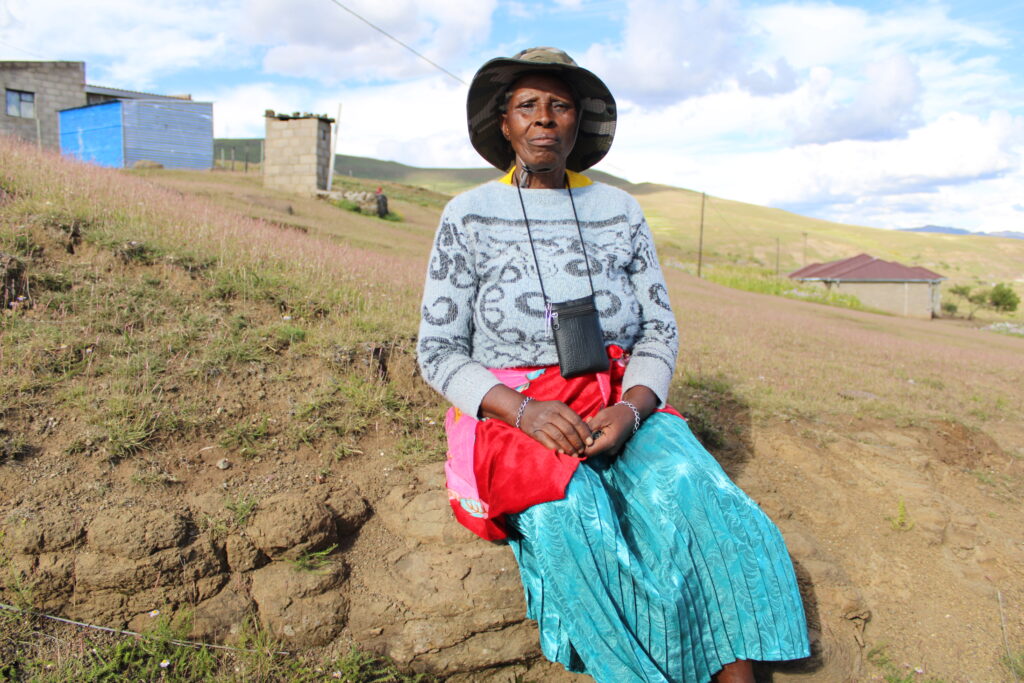
Another HRD, Mrs. ‘Mathapelo Motabola, who has benefited from SLC’s support reflects on her arduous relocation journey. She shares with delight how she is the recipient of a newly built six-roomed house in Litšotsong after her house in Makalong was destroyed by blastings that happened during one of the phases of the construction of the Polihali dam. While all her belongings are yet to be relocated to her new place of residence, she is grateful to have a place where her children and grandchildren can call home. “When they come to visit, I just point them to different rooms and tell them where to sleep.” Mrs. ‘Mathapelo Motabola, enthused.
SLC’s trainings of HRDs have proven to be successful as communities are now better positioned to advocate for themselves independently of our organisation. This has been the aim in SLC’s programming – capacity building – to avoid over dependence of beneficiaries on the Centre, but to empower them to have autonomy.
Conclusion
The empowerment of grassroots HRDs through targeted training and legal education has proven to be a powerful strategy in advancing community rights and accountability in development contexts. The experiences of Mr. Kopo Mpiti and Mrs. ‘Mathapelo Motabola illustrate how informed and confident HRDs can effectively challenge injustices, engage constructively with project implementers, and support their communities in navigating complex legal and social landscapes. The SLC’s approach aligns with the principles enshrined in the UN Declaration on Human Rights Defenders, affirming the right of individuals and groups to promote and protect human rights. As communities become more autonomous and proactive in defending their rights, the long-term impact of such capacity-building efforts becomes evident — fostering resilience, dignity, and justice at the grassroots level.


